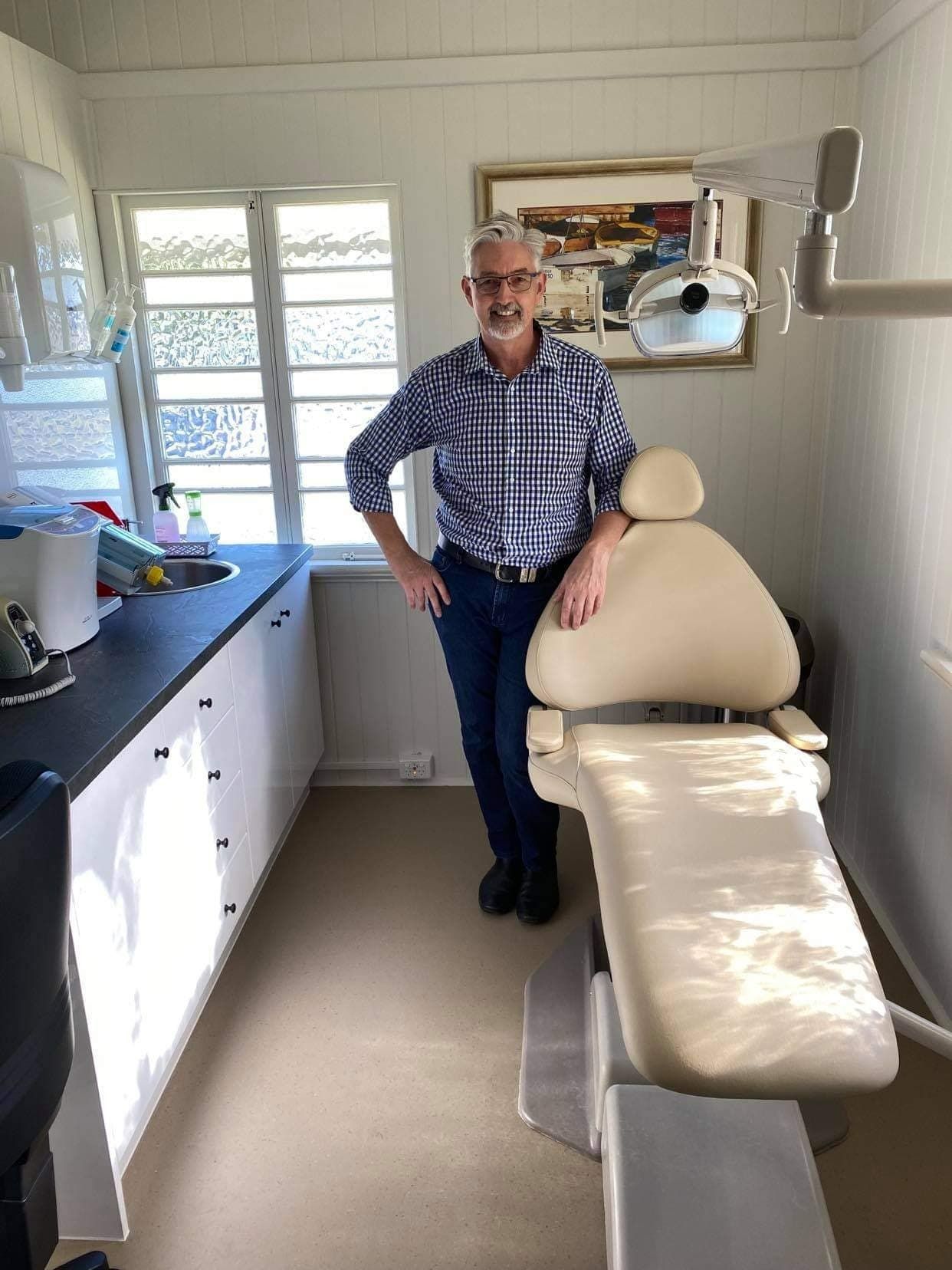About Us
Dedicated to Denture Care
Cane to Coast Dentures, led by Scott Thomas, provides services such as full acrylic dentures, partial acrylic dentures, partial chrome cast dentures, partial Valplast dentures, immediate dentures, implant retained dentures, mouthguards, denture repairs, denture additions, denture relining, denture adjustments and financial assistance for Mackay, Sarina, Proserpine, Moranbah and beyond.
Together with his wife Jules, Scott established Cane to Coast Dentures with a focus on providing attentive service and innovative care. The clinic is fully-registered with the Australian Dental Prosthetists Association, and offers an instant HICAPS claim service to help make dental care more manageable and accessible.
Our commitment to community also extends beyond the clinc. For years we have been a financial sponsor of local organisations, such as Alligator Creek Taekwondo.
Whether you need new dentures, repairs or advice, we are here to provide supportive and attentive care. If you are seeking denture services, contact us on (07) 4943 2299 to learn how we can help maintain your oral health.
Scott Thomas
With over three decades as a dental technician and more than ten years as a registered dental prosthetist, Scott combines knowledge with a genuine commitment to enhancing smiles.
Scott’s Postgraduate Diploma of Clinical Dental Technology from the University of Otago enables us to offer a comprehensive range of services, from creating new dentures to managing repairs with precision and care.
Jules Thomas
As the Practice Manager at our Mackay clinic, Jules plays a pivotal role in ensuring the smooth operation of the practice. With a focus on patient care and clinic efficiency, Jules is dedicated to creating a welcoming environment for both patients and staff. Her attention to detail and commitment to service excellence ensures every visit is a seamless and positive experience.
Micayla Abela
Micayla brings a wealth of knowledge and local expertise to our Mackay clinic. With a Bachelor in both Dental Prosthetics and Dental Technology from Griffith University, she spent five years honing her skills. A proud Mackay local for over 20 years, Micayla has worked alongside Scott for the past three years, providing exceptional care and craftsmanship to our patients. As a member of the Australian Dental Prosthetists Association, Micayla is dedicated to delivering the highest quality service to the community she calls home.
Julia
Julia, our skilled Dental Technician, brings a decade of industry experience to the team. With qualifications in Dental Technology, she plays a key role in creating high-quality dental appliances with precision and care. Julia’s attention to detail and dedication to her craft ensure that every product meets the highest standards, contributing to the exceptional service our clinic is known for.
Deb
With two years of experience at our clinic, Deb brings a welcoming warmth and efficiency to every patient interaction. Her friendly demeanor and dedication to patient care ensure that your experience, from booking appointments to answering inquiries, is smooth and stress-free. Deb’s commitment to creating a positive environment makes her an invaluable part of our reception team.
Diana
Although Diana has been with us for just 12 months, she has quickly become an essential part of our team. Her professionalism and approachable nature make her a trusted point of contact for our patients. Diana’s attention to detail and commitment to ensuring a seamless experience ensure that every visit to the clinic starts off on the right note.
Contact us for any enquiries






